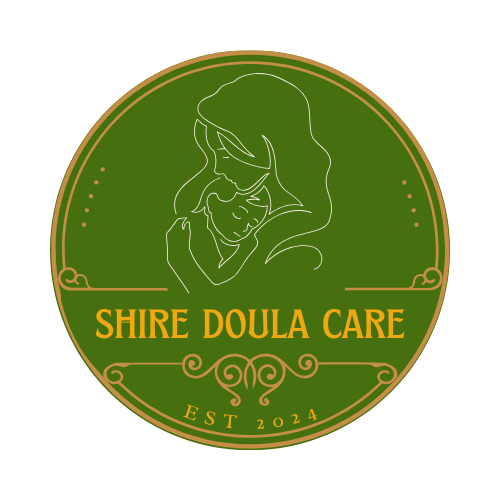“The doula is a professional trained in childbirth who provides emotional, physical, and educational support to a mother who is expecting, is experiencing labor, or has recently given birth. Their purpose is to help women have a safe, memorable, and empowering birthing experience.”
American Pregnancy Association
Doulas teach and empower you to advocate for yourself. Birth as a process requires physical, emotional, and mental strength. We can also be a voice of reason and support when needed during stressful and emotional situations. Our goal is to help you make important and informed choices for you and your family during this exciting time. Providing education and coming along for the ride as a resource during your birth process means you have our wealth of knowledge and experience on hand the whole time.
Countless scientific trials examining doula care demonstrate remarkably improved physical and psychological outcomes for both pregnant, birthing, and postpartum people and their baby.
A doula and client relationship typically begins a few months before the scheduled due date. We are an open door for communicating fears, concerns, or worries and hold a wealth of knowledge to help develop birth preferences (often called a birth plan). Doula’s take the role of support during the birth process, offering encouragement and techniques to help comfort the birthing person. Pain management techniques like breathing, relaxation, laboring positions, and encouraging partner involvement such as massage are also very common things doulas do.
A Brief History of Doula Care
Archeological findings of stone carvings and statues and anthropological studies have depicted companions providing support to birthing women. The role of doula as we know it today emerged in the U.S. in the 1960’s when women began desiring unmedicated, low-intervention births and began to have friends and others with formal or practical knowledge about childbirth provide them with support during pregnancy. From there various organizations were founded focusing on certification and expansion of the role of the doula. Due to the lobbying efforts of DONA (Doulas of North America) International, the term doula was accepted into the American Heritage Dictionary and Oxford Dictionary in 2003, followed by Merriam Webster Dictionary in 2004.
There is no formal doula certification or training program in the United States. Structured education prior to entry into the field, access to a mentor, opportunities for networking, and client confidence are benefits of the typically two or three day intensive certification.
Consistent findings include:
- average labor is shorter, with fewer complications
- reduces negative feelings about one’s childbirth experience
- reductions in the need for pitocin (a drug used to induce or intensify labor)*
- reduced requests for pain medication and/or epidurals*
- reduction in the use of forceps or vacuum extraction*
- increase in the rate of vaginal birth*
Research shows parents who receive doula care:
- Feel more secure and cared for
- Are more successful in adjusting to new family dynamics
- Have a more positive experience with breastfeeding
- Have greater self-confidence
- Are less likely to suffer from postpartum depression
*None of these are inherently negative or unfavorable things. Neither are they indications of a superior birth experience. They are common escalations used in medical settings that can be given to birthing people without proper explanation, or presented as the only option when there are other less invasive things to try first. I am here to support you in whatever your birth choices are!
Doulas have a positive impact on the well-being of the entire family.
National Institute of Health

